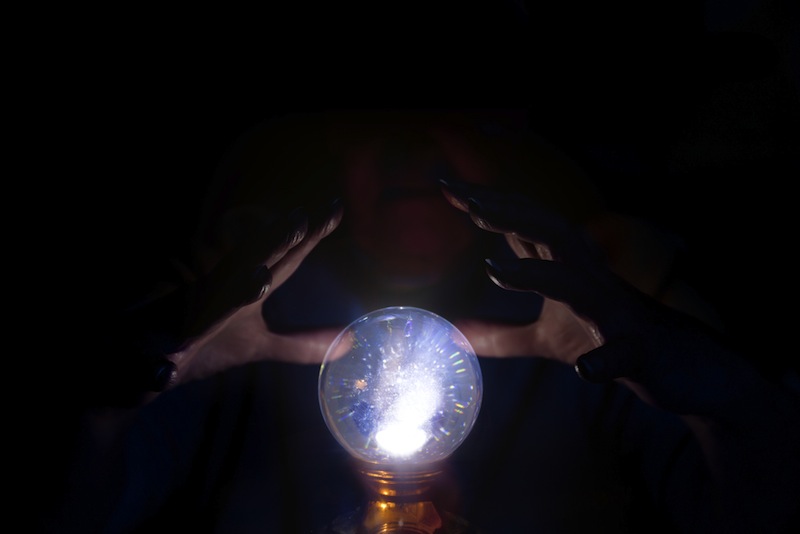Here to Hereafter: Can Psychics Really Talk to the Dead?

Get the world’s most fascinating discoveries delivered straight to your inbox.
You are now subscribed
Your newsletter sign-up was successful
Want to add more newsletters?

Delivered Daily
Daily Newsletter
Sign up for the latest discoveries, groundbreaking research and fascinating breakthroughs that impact you and the wider world direct to your inbox.

Once a week
Life's Little Mysteries
Feed your curiosity with an exclusive mystery every week, solved with science and delivered direct to your inbox before it's seen anywhere else.

Once a week
How It Works
Sign up to our free science & technology newsletter for your weekly fix of fascinating articles, quick quizzes, amazing images, and more

Delivered daily
Space.com Newsletter
Breaking space news, the latest updates on rocket launches, skywatching events and more!

Once a month
Watch This Space
Sign up to our monthly entertainment newsletter to keep up with all our coverage of the latest sci-fi and space movies, tv shows, games and books.

Once a week
Night Sky This Week
Discover this week's must-see night sky events, moon phases, and stunning astrophotos. Sign up for our skywatching newsletter and explore the universe with us!
Join the club
Get full access to premium articles, exclusive features and a growing list of member rewards.
In the new Clint Eastwood film "Hereafter," Matt Damon stars as George, a man who has the ability to communicate with ghosts. George, who retired from the contacting-the-dead business (calling it a curse instead of a blessing) is reluctantly drawn back into doing readings for people who have recently lost loved ones.
People in nearly every culture have long believed that communication with the dead is possible, and throughout the ages many people have claimed to be able to speak with the dearly departed. Ghosts and spirit communication often show up in classic literature, including mythology, the Bible and Shakespeare's plays.
In Victorian England, it was fashionable in many circles to conduct séances; Ouija boards, three-legged tables, candles and other accoutrements were used to try to contact the dead. In the U.S., belief in communication with the dead rose dramatically in the 1800s along with the rise of Spiritualism, a religion founded on hoaxed spirit communication by two young sisters in Hydesville, N.Y. Despite the fact that the sisters later admitted they had only been pretending to get messages from the dead, the religion they helped start flourished, claiming more than 8 million adherents by 1900.
For well over a century, many mediums have been caught faking spirit communication. Harry Houdini exposed many psychics as frauds who used trickery to make vulnerable people believe in the reality of spirit messages. (For more on this, see Massimo Polidoro's book "Final Séance," Prometheus Books, 2001).
Whether real or faked, the messages supposedly conveyed from the great beyond have changed dramatically over time. A century ago, mediums "in touch with the spirit" during séances would write pages and pages of "automatic writing," the psychic's hands allegedly guided by ghosts to convey lengthy handwritten messages.
Curiously, ghosts seem to have lost their will (or ability) to write since that time — or even communicate effectively. These days the spirits (as channeled through mediums) seem to prefer a guessing game and instead offer only ambiguous, vague information: "I'm getting a presence with the letter M, or J in the name? A father, or father figure perhaps? Did he give you something special to remember him by, something small?"
If spirit communication is real, one might think that countless unsolved homicides and disappearances could be easily solved simply by contacting the dead and getting specific, incriminating evidence about the circumstances of their deaths.
Get the world’s most fascinating discoveries delivered straight to your inbox.
In "Hereafter," George repeatedly views his ability as a curse. But in reality, those who claim to be psychic mediums (such as James van Praagh, John Edward, Alison DuBois, and Sylvia Browne) eagerly exploit their "curse," making millions of dollars on book deals, appearances, private readings and TV shows.
Yet their powers have never been proven under controlled scientific conditions, and their track records of success are spotty at best. In a 2002 case, Browne, a regular on the "Montel Williams" show, told the parents of missing child Shawn Hornbeck that their son was dead. His body, she said, would be found in a wooded area near two large boulders, and that he had been kidnapped by a very tall, "dark-skinned man" who wore dreadlocks. In fact, Hornbeck and another boy were found alive five years later in the home of a Caucasian, non-dreadlocked Missouri man named Michael Devlin who had kidnapped them.
There are even entire towns whose populations claim to get messages from the dead. For example, each year more than 20,000 people visit New York's Lily Dale Assembly, the oldest and largest Spiritualist community in the United States. The dozen or so permanent resident mediums offer their psychic services to tourists. [Related: Monsters, Ghosts and Gods: Why We Believe]
Despite more than a century of research, science has yet to validate the afterlife, ghosts or psychic powers. Of course, speaking to the dead requires no special skill or ability; it's getting a response that's the hard part. Shakespeare noted this in "Henry the Fourth, Part I," when Glendower claims to have psychic abilities: "I can call spirits from the vasty deep," to which his cousin Hotspur replies, "Why, so can I, or so can any man. But will they come when you do call for them?"
Benjamin Radford is managing editor of Skeptical Inquirer science magazine, and author of "Scientific Paranormal Investigation: How to Solve Unexplained Mysteries"; his Web site is www.RadfordBooks.com.

 Live Science Plus
Live Science Plus










